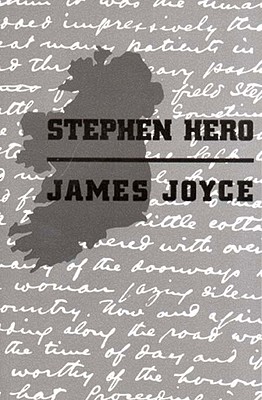APS TOGETHER
Day 6
Stephen Hero by James JoyceXX, pp. 99-121
January 17, 2022 by Belinda McKeon
Stephen’s notoriety has been considerably enhanced by news of his encounter with the Very Reverend Dr Dillon; exaggerated accounts of the conversation are doing the rounds, and Stephen makes sure to exaggerate them further. His brother, Maurce, is unmoved, however; as Stephen tells the story yet again, Maurice is thinking about how different it makes him feel to walk on the ball of his left rather than his right foot. It’s curious to see Joyce presenting Maurice, who has up to this point been a devoted and intellectually curious listener for Stephen, as something of a comic foil here; is this a way of confirming just how unbearable Stephen, as he CONTINUES to prepare for the debut of his paper, has become? This is a chapter, indeed, containing a number young men presented as laughable, unsophisticated presences in Stephen’s world; such presences are certainly credible, especially given the muted response with which Stephen’s paper meets when it is finally delivered at the L&H, but it’s worth thinking about what narrative purpose they serve at this point of the novel. Stephen considers himself above yokels like Temple and O’Neill, but perhaps he also worries, at a less conscious level, that he will achieve nothing more in life than they do, or even achieve much less. It’s significant that this is also the chapter in which we learn more about his father’s fall from grace, or at least from comfortable, middle-class prosperity; his bitterness, his continuing delusions of grandeur, the unreasonable expectations he places on Stephen’s shoulder and—most strikingly—the unjustified contempt and cruelty he directs towards his wife and his daughter. As he sits by the fire, brooding over his losses, blaming his wife’s family origins, it’s impossible not to see him as the direct ancestor of another angry father who would come later in this century of Irish novels; John McGahern’s Michael Moran, muttering and fuming in his fireside spot. This long passage in which Stephen at once reveals and tries to process the extremities of his father’s downfall and his character is marked in the manuscript by several planned corrections, as well as elisions; it may be that for the young Joyce, too, it was painful material, not yet ready to be completely transformed into fiction.
The chapter closes with Stephen finding himself drawn towards Good Friday service at a church on Gardiner Street, a service over which he knows The Very Rev, etc, Dillon to be presiding. The apprentice orator recognizes, in the oratory of the professional, the vanity and theatricality of delivery, and the relish in the power which it bestows; the approval and admiration with which the Jesuit priest is bathed in the wake of the ceremony—even by gossiping old women in the porch who comment on how he uses words they “can’t intarpit”—is in sharp contrast to the awkward resentment Stephen experienced after his own sermon.
